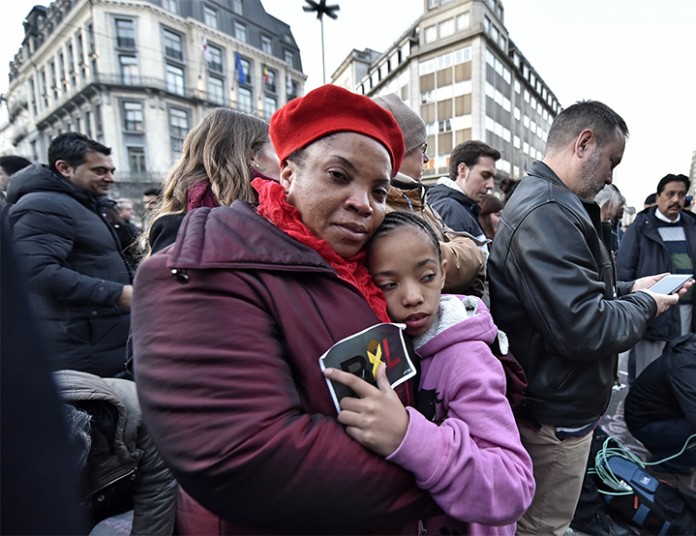
All Baylor students studying in Europe have been accounted for after the attacks in the Belgian capital Tuesday morning, according to Exchange Program and Study Abroad Advisor Bobby Leis.
The attacks consisted of three explosions: two at the Brussels airport just before 8 a.m. and one at a metro station at around 9:20 a.m., Brussels time.
Colleyville junior Ashton Smyth, who is studying with Baylor in Maastricht, woke up to the sound of alerts going off on her phone from a European transportation email service.
She said they were “reports of explosions at first,” but progressed to reveal it was a potential terrorist attack. Smyth, along with the other students in the program, was in Maastricht Tuesday for classes — about a two hour train ride from Brussels.
The attacks took place just four days after the capturing of Paris terror attack suspect Salah Abdeslam, who is a Belgian-born French citizen. ISIS, also referred to as ISIL, claimed responsibility for the attacks that left at least 34 dead and multiple injured.
No students are studying in Brussels this semester, but many travel through the area to access other parts of Europe, according to Leis. The attacks are particularly damaging in that they clogged the epicenter of travel for the entire European Union.
“I definitely think that was a very strong motivator,” Smyth said in reference to how the attacks will affect European travel.
Smyth was advised by the program coordinators not to travel to Brussels in the ensuing days, and that it would also be wise to refrain for the rest of the program.
Smyth said she was in Brussels with the program just 11 days before the attack.
Leis said the Center for Global Engagement is tied in with international travel organizations Mercer and ISOS in regards to safety concerns in other countries.
Leis assures students that “Baylor is fairly conservative” in how it approaches selecting countries as travel destinations.
Maxey Parrish, senior lecturer in the department of Journalism, Public Relations and New Media, has directed the Maastricht program three times before, and said he has been through the Brussels airport multiple times.
“The fact that our Maastricht students are fine shows how far Baylor goes to keep our students safe,” wrote Parrish in an email to the Lariat.
Tuesday’s attacks brought up similar feelings from the Paris attacks over four months ago. Smyth said she received emails and calls from friends and family making sure she was OK.
She made a post on Facebook to inform everyone on her wellbeing.
“All of my Baylor friends and other Baylor in Maastricht colleagues are safe and accounted for in the Netherlands today because we have class,” her post said.
Smyth recalled the tense atmosphere during her last trip to Brussels. She remembered seeing military trucks parked outside of train stations, and military personnel patrolling the streets.
“You could tell there was the sense that it could have happened [then],” Smyth said.
But Professor Parrish urged students to not let the attacks keep them from traveling.
“You can take every precaution, plan for even the most unlikely scenarios, and continue to live life. That’s what I chose to do,” he said.
To show for it, Parrish is taking a group of Journalism students to Budapest this summer, undeterred. He suggests students to do the same.





